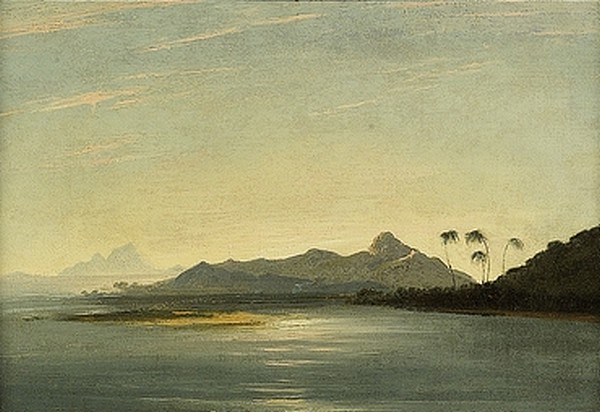Journey to an unknown land
- Details


It doesn't matter if today is already September 3rd (Wednesday, remember I changed the posting day) and we're opening a new season; I just refuse to believe that summer comes to an end. So I suggest a journey to some point between New Zealand and South America, to an island called Orplid that holds a nice story:
"Once upon a time two boys, Eduard and Ludwig, studied theology at the seminary in Tübingen. The kids got bored at class and felt smothered by the disciplined life they led. That's why, whenever they could, they lived in an imaginary land called Orplid. Eduard and Ludwig secretly assembled some friends and told them about that island where heroes lived, free of hunger or illness. They told them stories about gods, fairies and naughty goblins, and about Weyla, the protective goddess of Orplid. That continued until the boys finished their studies and went different ways, although Eduard and Ludwig remained friends for ever."
This happened around 1825 and the two boys were our old friends Eduard Mörike and Ludwig Bauer, who continued thinking about Orplid even away from the seminar. Shortly after, Bauer wrote two plays, Der heimliche Maluff and Orplids letzte Tage. Mörike wrote a novel in 1830, Maler Norten, including a shadowplay named Der letzte König von Orplid. But the piece of work of our interest is the last one written about that theme, a short poem by Mörike from 1838, Weylas Gesang. And we are interested, of course, because this poem became a song.
In 1888, a friend lent Hugo Wolf a house in Perchtoldsdorf, near Vienna, as he wanted to be isolated and only concentrated on composing. He succeeded, and in two years he wrote the Mörike and Goethe cycles, the Spanisches Liederbuch and part of the Italianishes Liederbuch (that's to say, around 150 songs). Then though, he had a mental block and was unable to write another song for one year. That’s how hard and complicated his life was; Wolf always suffered a lot due to his lack of creativity.
But 1888 was a good time, the best, as the composer wrote those 53 Gedichte von Mörike between February and May and, September and November. The beautiful Weylas Gesang was one of the last songs, written on November 9th. The music moves between gravity and intimacy, between solemnity and tenderness, after all a powerful goddess is talking, and she addresses her words to her beloved child, her island...
Weyla begins with solemnity, singing the whole verse with the same note (have you ever thought how much music can be done with just one note by varying the rythm?); during the second verse the tune traces an arc to the first note. The third verse insists again in that same note, and Wolf joins the fourth verse with a tune that goes down to an even lower note than the initial one (we talked about this draw on the post about Liebesbotschaft). The second stanza begins again with a repeated note but now it seems that Weyla can't hold back her emotion and the tune makes a wide interval in Kind! I would say that, at the last verse, the pride raises as Weyla is talking about many kings guarding her treasure, but then she realises that she's a goddess and lets the tune descend... And the piano, what does it do? Arpegiatted chords, one after another, quietly. During the whole Lied except for the word Kind!, then the piano permits itself a short interlude, a tune that sounds like an echo before continuing with the calmed chords.
Here you have Weylas Gesang, in the fantastic version of Simon Keenlyside and Malcolm Martineau.
Das ferne leuchtet;
Vom Meere dampfet dein besonnter Strand
Den Nebel, so der Götter Wange feuchtet.
Uralte Wasser steigen
Verjüngt um deine Hüften, Kind!
Vor deiner Gottheit beugen
Sich Könige, die deine Wärter sind.
the distant gleaming;
From the sea, your sunny shore
steams with mist, which moistens the cheeks of gods.
Ancient waters rise
rejuvenated about your hips, child!
To your divinity bow
kings, who are your attendants.
(translation by Emily Ezust)














Comments powered by CComment